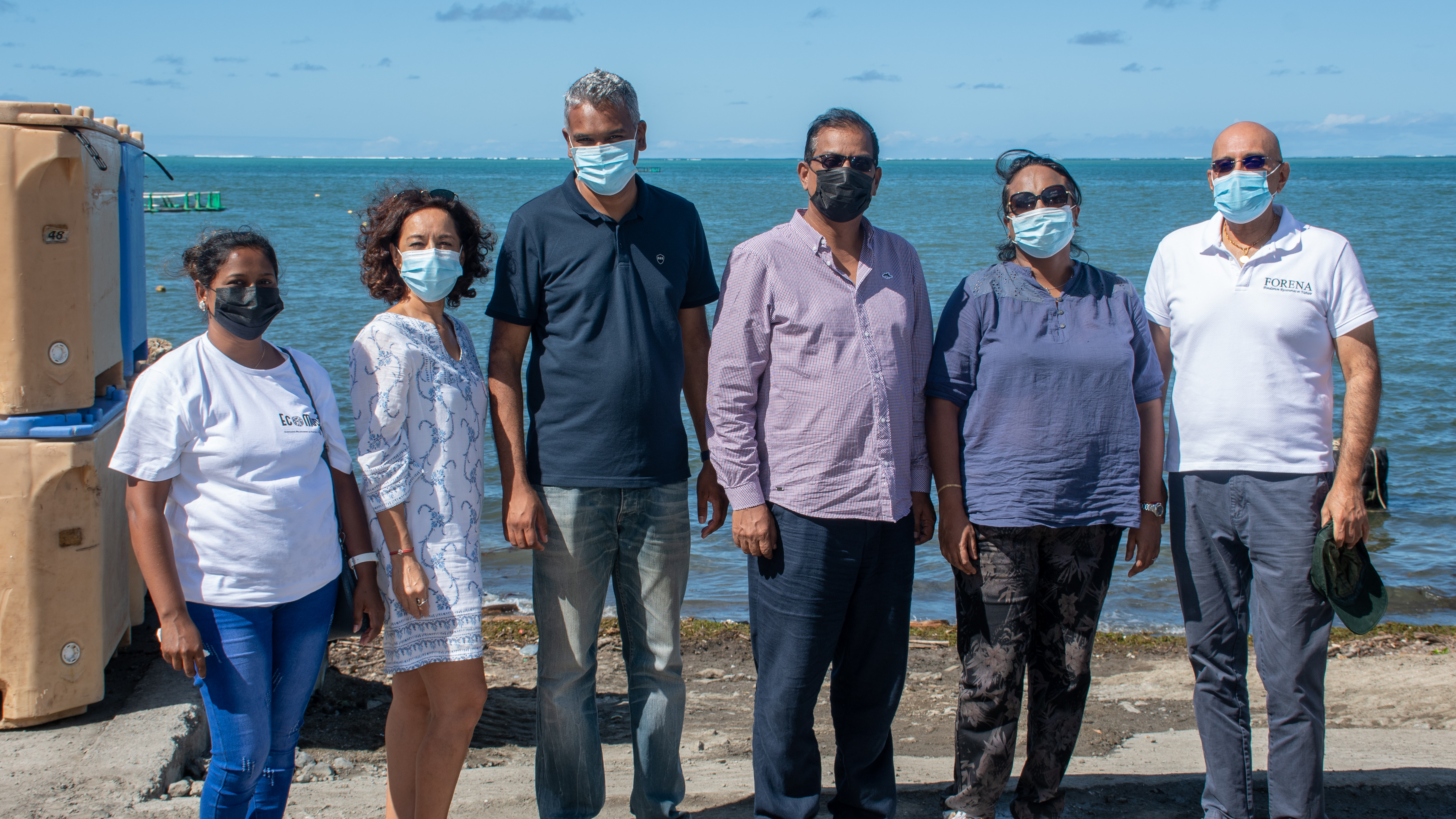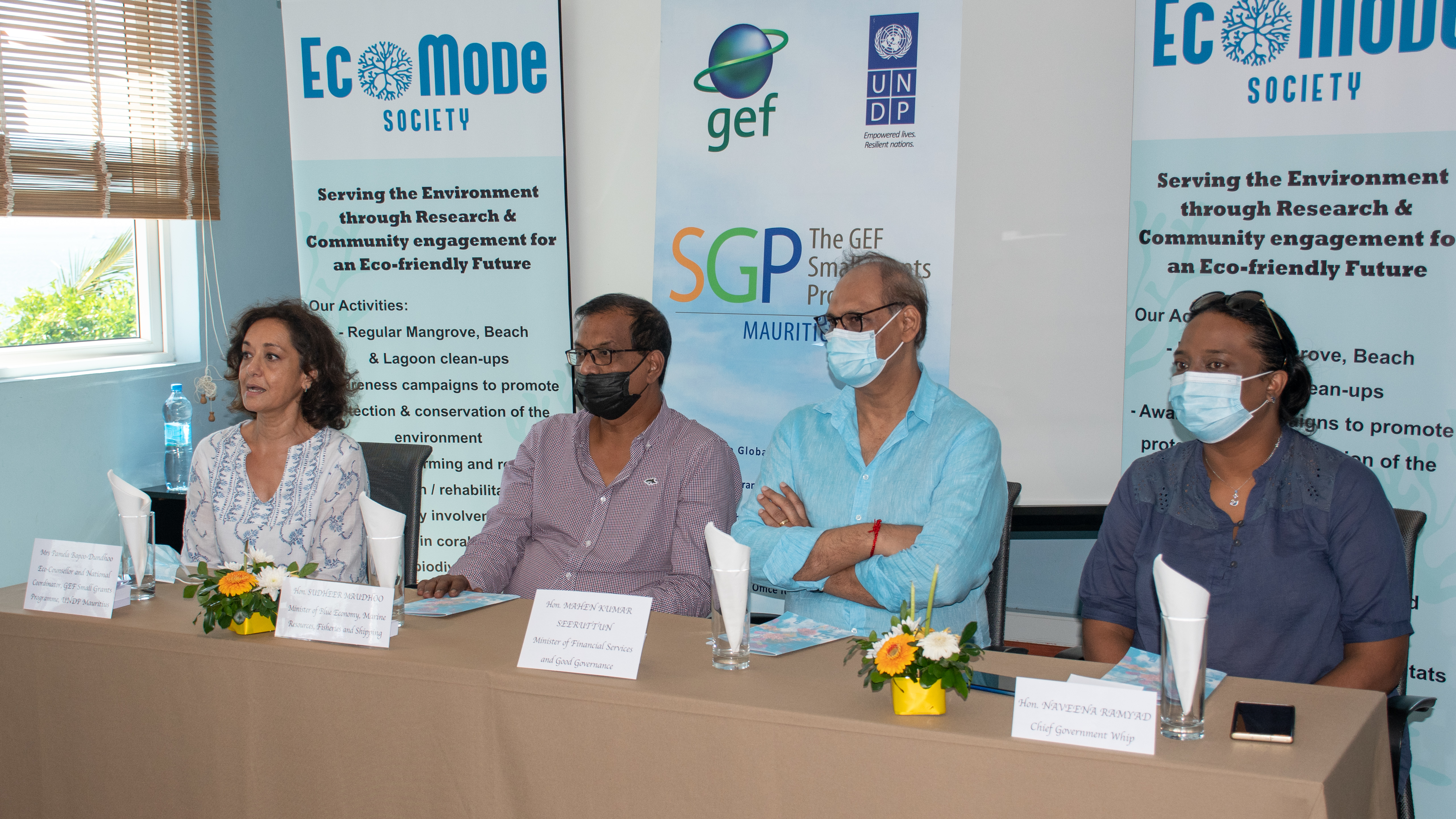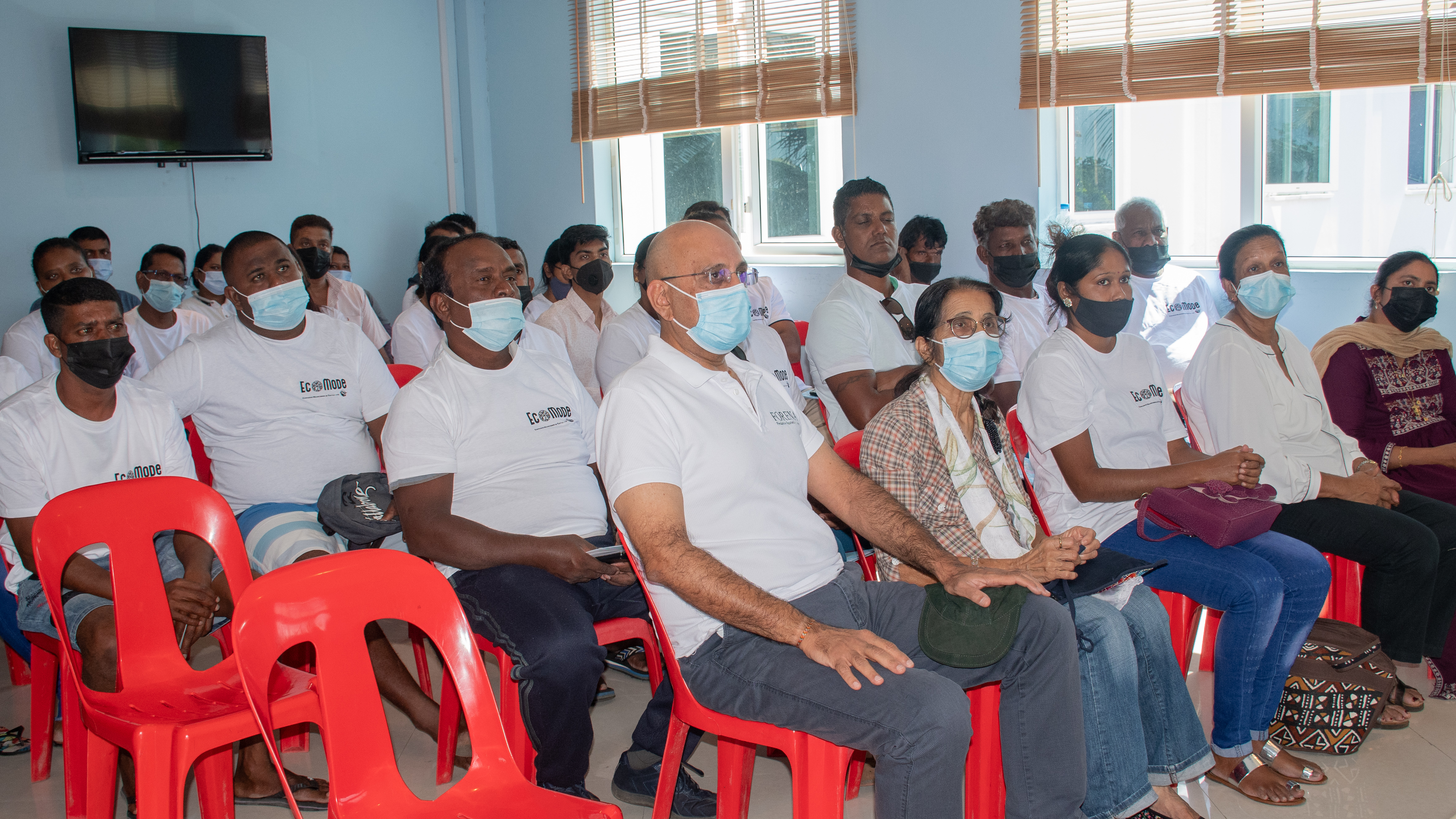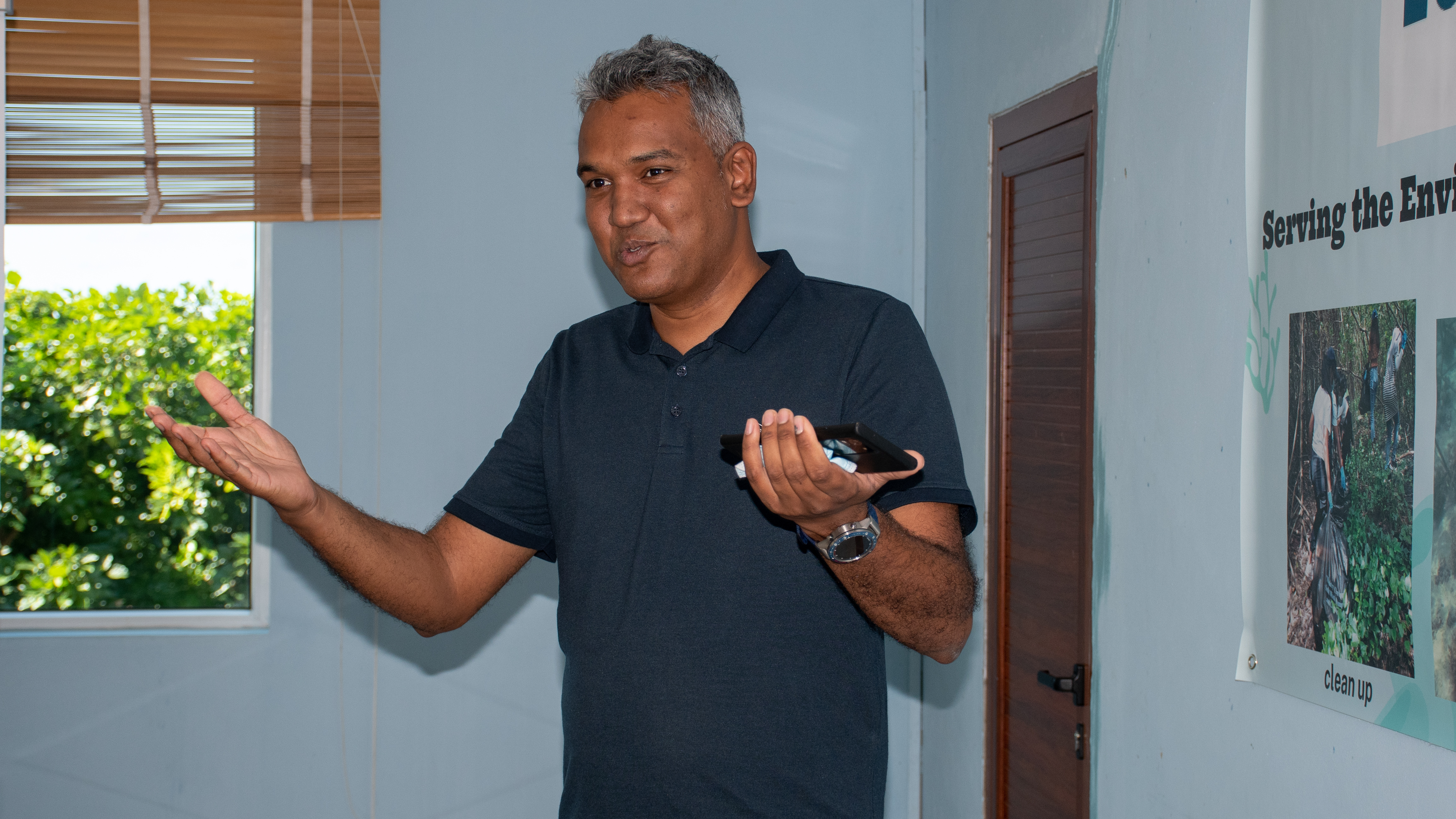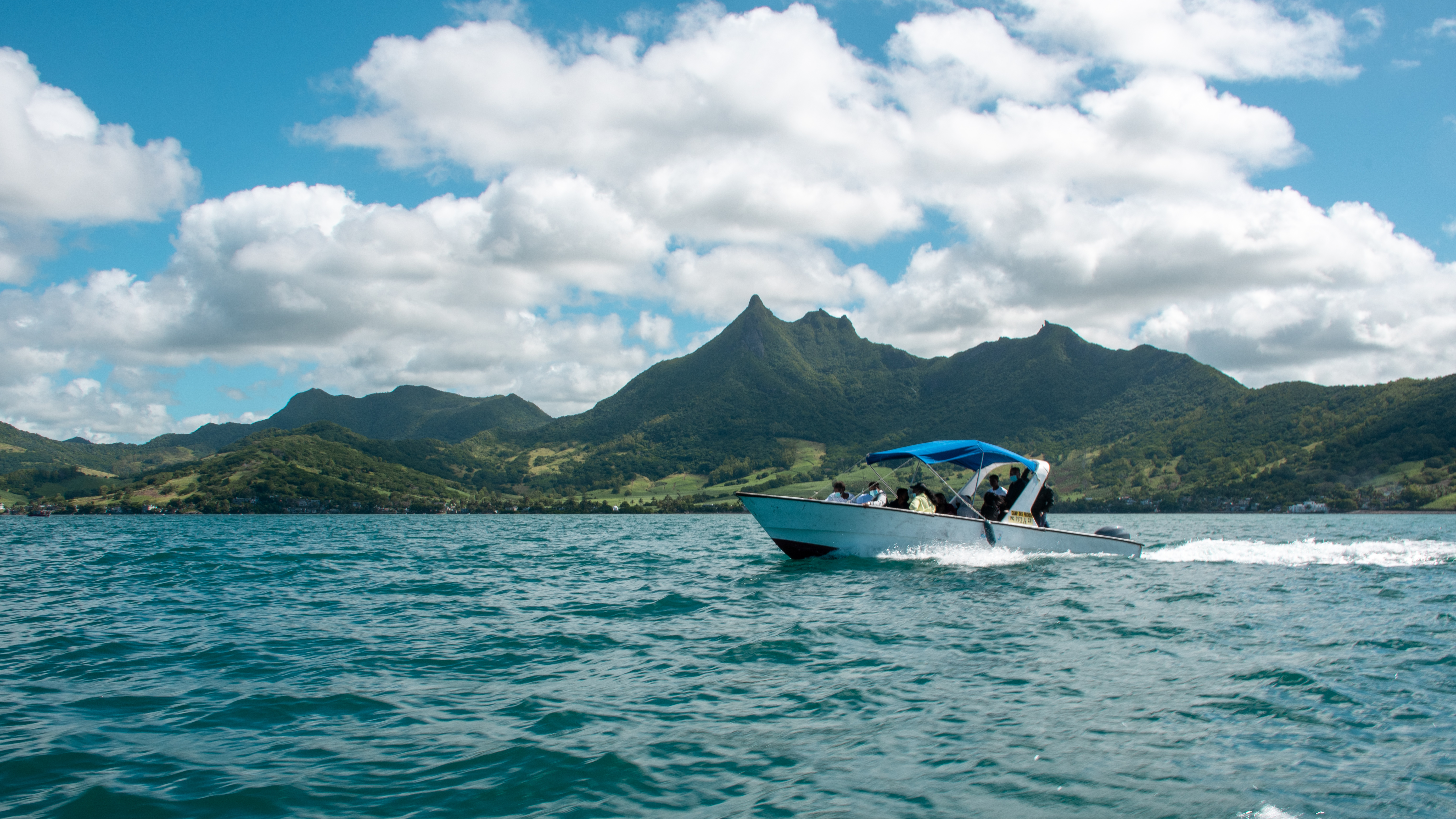This initiative will ensure that the genetic legacy of the damaged corals is maintained and that the damaged ecosystems services are restored.
The UNDP-GEF Small Grants Programme partners with the EcoMode Society to restore damaged corals following the MV Wakashio Oil Spill Crisis.
May 4, 2022
From left to right: Mrs Rathla Jungly, participant in the project; Mrs Pamela Bapoo-Dundoo, National Coordinator, UNDP-GEF Small Grants Programme; Mr. Nadeem Nazurally, President of Ecomode Society; the Hon. Sudheer Maudhoo, Minister of Blue Economy, Marine Resources, Fisheries and Shipping; Mrs. Naveena Ramyad; Government Chief Whip; and Mr. Manoj Vaghjee, President of FORENA. Photo Credit: Jean-Yan Norbert @UNDPMauritius
On 30 April, the EcoMode Society has launched its Reef Restoration Project funded by the UNDP-GEF Small Grants Programme (SGP). This initiative aims at restoring the marine ecosystems and supporting the local communities impacted by the MV Wakashio Oil Spill Crisis in 2020.
The grounding of the MV Wakashio has damaged several hundred metres of coral reefs along the South East Coast of Mauritius. The wreck has also caused the spill of harmful components which have dissolved in the water and entered the food chain, and a heavy sedimentation process which is gradually burying corals and other marine life.
In an attempt to support the restoration of the affected ecosystems and to contribute to the recovery of the impacted communities, the EcoMode Society has come forward with a ‘Reef Restoration’ project, funded by the UNDP GEF Small Grants Programme. This involves taking broken coral fragments from the wreck site, micro-fragmenting them and nurturing them in coral nurseries in Pointe Aux Feuilles. The project also includes monitoring the growth and survival rate of corals, the maintenance and cleaning of nurseries, and transplantation to degraded sites. This initiative will ensure that the genetic legacy of the damaged corals is maintained and that the damaged ecosystems services are restored.
These restoration activities are carried out with the participation of members of the local community, especially fishers who received alternative livelihood training and capacity building in coral restoration activities in the aftermath of the oil spill incident. It is worth noting that it is mostly women fishers who are engaging in the restoration project and nursery maintenance. For instance, following the training offered by Ecomode society, Mrs Rathla Jungly, a fisher living in the South East of Mauritius, now contributes actively in restoration activities. According to her, it is imperative that fishers take an active part in the protection of corals reefs, since they depend on the ocean for their livelihood.
In the opening remarks of the launching ceremony, Mrs Pamela Bapoo-Dundoo, National Coordinator for the UNDP GEF Small Grants Programme in Mauritius, explained the importance of preserving the genetic legacy of broken corals and restoring the marine ecosystem, while providing new skills and livelihood to the fisher community.
Mrs. Naveena Ramyad, Government Chief Whip, highlighted that such small projects play a key role in the wider efforts for the conservation and restoration of coral reefs, which are essential to maintain marine ecosystems, prevent beach erosion and contribute to the economy.
In his speech, the Honourable Mahen Seeruttun, Minister of Financial Services and Good Governance, talked about the commitment taken by the Government to support the community and build forward better following the MV Wakashio oil spill. He also underlined that all relevant stakeholders, including the Government, NGOs, scientific experts and members of the community, need to collaborate to ensure the success of environmental protection initiatives.
During the keynote address, The Honourable Sudheer Maudhoo, Minister of Blue Economy, Marine Resources, Fisheries and Shipping, talked about the importance of raising awareness among the fisher community, who operate in the ocean daily and are therefore responsible for the protection of marine resources. He also highlighted their key role and contributions towards the success of this project.
The launching ceremony also included a site visit to the Pointe Aux Feuilles nurseries, to observe the progress achieved. So far, under this project, 2000 coral fragments have been placed into nurseries. A further fragmentation will enable the project team to achieve 10,000 fragments by the end of 2022, prior to transplantation.

 Locations
Locations